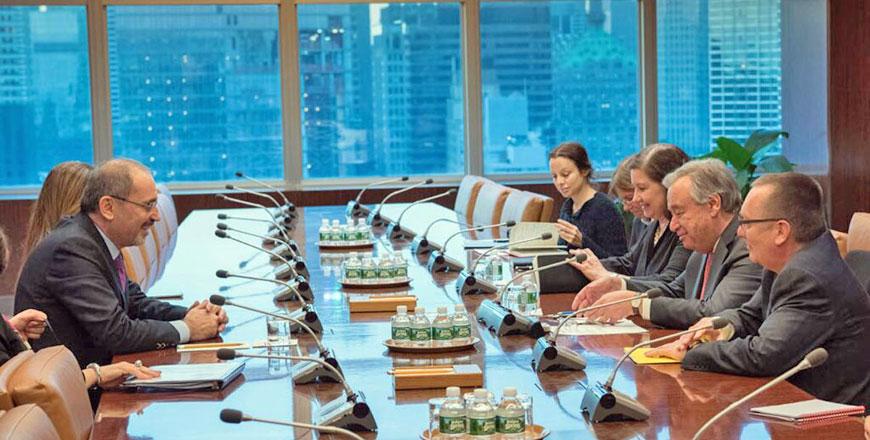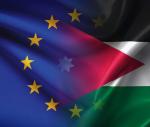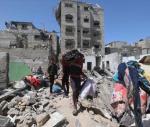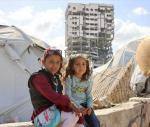You are here
Ties, region top Safadi’s meeting with Lavrov in Moscow
By JT - Feb 03,2021 - Last updated at Feb 03,2021
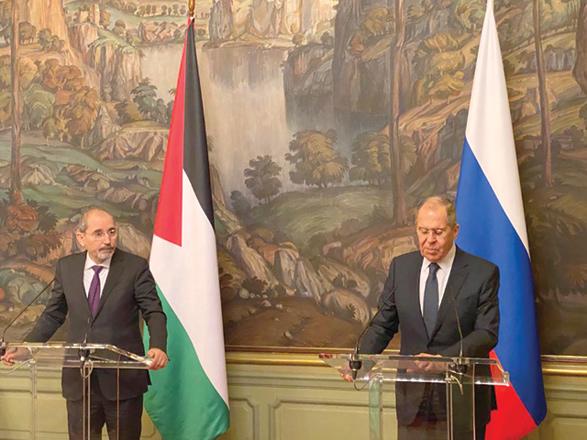
Deputy Prime Minister and Minister of Foreign Affairs Ayman Safadi and Russian Foreign Minister Sergey Lavrov hold a press conference in Moscow on Wednesday (Petra photo)
AMMAN — Deputy Prime Minister and Minister of Foreign Affairs Ayman Safadi and Russian Foreign Minister Sergey Lavrov on Wednesday met in Moscow and discussed ways to bolster cooperation and resolve regional issues.
The meeting came in preparation for holding the sixth session of the Joint Jordanian-Russian Committee in the first half of 2021, according to a Foreign Ministry statement.
Safadi and Lavrov voiced solidarity in the fight against the coronavirus pandemic and examined ways to procure the Russian COVID vaccine, “Sputnik V”.
They affirmed the two countries’ keenness “to create broader horizons for cooperation”, as a reflection of the strong relations established by His Majesty King Abdullah and Russian President Vladimir Putin on foundations of trust and transparency, the statement said.
Agreeing on the significance of the role of the International Quartet and Egypt in resolving the Palestinian-Israeli conflict through a peaceful settlement, they also voiced their support to Palestinian reconciliation.
Appreciating Russia’s “clear and committed” stance towards the two-state solution and reiterating the centrality of the Palestinian cause, Safadi condemned the current stalemate situation and called for intensifying efforts to relaunch “serious and effective negotiations” to achieve a just peace in accordance with international law, international legitimacy resolutions and the Arab Peace Initiative that was originally launched in Saudi Arabia.
Safadi added that the new US administration has announced its intention to reopen the American consulate in East Jerusalem and the Palestine Liberation Organisation (PLO) office in Washington, as well as resume humanitarian aid to the Palestinians and support the United Nations Relief and Works Agency for Palestine Refugees (UNRWA).
In response to a question about the recent peace agreements signed between Israel and some Arab countries, Safadi indicated that the effect of these agreements rely on Israel’s manner of dealing with them, explaining that if Israel considers them as an incentive to resolve the main issue, ending the occupation and achieving peace based on the two-state solution, its role will be positive, the statement said.
On the other hand, if Israel does not do so and continues with measures that undermine this solution, the conflict will escalate and the danger will increase, he added.
Based on the nature of the situation, Jordan welcomed the reconciliation process between Israel and some Arab countries, but this move should not replace the establishment of the Palestinian state, he stressed.
On the Hashemite Custodianship over Islamic and Christian holy sites in Jerusalem that is acknowledged by all Arab countries, Arab League resolutions, Organisation of Islamic Cooperation resolutions, and United Nations resolutions, Safadi noted that this guardianship is a responsibility that the custodian of these sanctities, His Majesty King Abdullah, bears with all the Kingdom’s capabilities.
Safadi described any violation against these sites as a provocation to the feelings of hundreds of millions of Muslims and Christians around the world.
Reviewing the efforts exerted to reach a political solution to the Syrian crisis, both sides stressed the continuation of cooperation and coordination in order to achieve the necessary progress to preserve the unity of Syria, restore its security, stability and role in the region, rid it of terrorism, safeguard it from foreign intervention and create conditions for the voluntary return of refugees amounting to 1.3 million hosted in Jordan.
Safadi also underlined that in 2018, Jordan responded to a request from a number of countries to allow the passage of several hundred Syrians who were working within the framework of the so-called White Helmets according to a written agreement in preparation for their resettlement in these countries.
Lavrov emphasised the need to adhere to the principle of political settlement of all Syrian issues by Syrians themselves, in accordance with international resolutions, including UN Security Council Resolution 2254.
Both ministers also focused on the situation in Iraq, Libya and Yemen and agreed on ensuring stability in the Arab Gulf and the need to create appropriate conditions by the international community to broker reconciliation and improve situation in these countries through political dialogue.
Related Articles
AMMAN — Jordan and Russia on Monday reiterated their continuous efforts towards furthering cooperation and enhancing bilateral ties.Foreign
AMMAN — Jordan and Russia on Monday stressed the need to continue working on enhancing cooperation, consultation and coordination regarding
AMMAN — Foreign Minister Ayman Safadi and UN Secretary General Antonio Guterres on Saturday discussed the Palestinian-Israeli conflict and t


